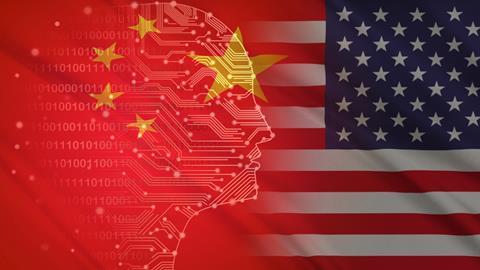The 21st century is witnessing a new kind of arms race, not with traditional weapons, but with algorithms and data.
Artificial intelligence (AI) has emerged as a critical domain of global competition, with nations vying for leadership in this transformative technology. China, in particular, has made its AI ambitions clear, investing heavily in research and development, and deploying AI across various sectors with remarkable speed.
One of the rising stars in this landscape is Deepseek, a Chinese AI initiative that exemplifies the nation’s rapid advancements and its commitment to challenging the established order. But this race for AI supremacy is not without its risks, raising critical questions about ethical considerations, national security, economic competition, and global stability.
China’s AI Ambitions: A National Priority
China’s pursuit of AI leadership is deeply embedded in its national strategy. The “Next Generation Artificial Intelligence Development Plan,” released in 2017, outlined a bold vision to become the world leader in AI by 2030. This plan is backed by significant government funding, massive datasets, and a supportive regulatory environment.
Several factors fuel China’s AI drive:
- Economic Transformation: China sees AI as a key driver of economic growth, automation, and productivity gains across various industries.
- Technological Self-Reliance: Amidst increasing geopolitical tensions and trade disputes, China aims to reduce its reliance on foreign technology and build a robust domestic AI ecosystem.
- Military Modernization: AI is being integrated into China’s military strategy, with applications in areas like autonomous weapons, intelligence gathering, and cyber warfare.
- Social Governance: China is also using AI for social governance, including surveillance, facial recognition, and social credit systems, raising concerns about privacy and human rights.
Deepseek: A Symbol of China’s AI Prowess
Deepseek, a Chinese company developing open-source large language models (LLMs), has garnered attention for its advancements. The large language models (LLMs) they are developing are similar to the technology behind OpenAI’s ChatGPT. While specific details about Deepseek’s ultimate goals remain somewhat opaque, its rapid progress demonstrates the growing capabilities of China’s AI sector.
Deepseek Coder has gained attention for it’s coding ability. This highlights a determination to make it in the AI space, matching or surpassing foreign technology. It’s important to note that “Deepseek” represents a broader trend of Chinese AI companies making significant strides. Other major players include:
- Baidu: Known for its Ernie Bot chatbot and investments in autonomous driving.
- Alibaba: Developing AI solutions for e-commerce, cloud computing, and logistics.
- Tencent: Focusing on AI applications in gaming, social media, and healthcare.
- SenseTime: A leading AI company specializing in computer vision and facial recognition.
- iFlytek: A prominent player in voice recognition and natural language processing.
- Huawei: While primarily known for telecommunications, Huawei is also investing heavily in AI research and development.
The Global Implications: Competition, Regulation, and Security
China’s rapid AI advancements have significant implications for the global balance of power and the future of technology:
- Economic Competition: The AI race is intensifying economic competition between China and the US, with both nations vying for dominance in key industries like semiconductors, cloud computing, and autonomous vehicles.
- Regulatory Divergence: Different approaches to AI regulation are emerging around the world. The EU is taking a relatively strict approach with its AI Act, while the US is pursuing a more market-driven approach. China’s approach emphasizes government control and social stability. This divergence creates challenges for multinational companies operating in multiple jurisdictions.
- Cybersecurity Risks: AI can be used to both enhance and undermine cybersecurity. There are concerns about the potential for AI-powered cyberattacks, the security of AI systems themselves, and the use of AI for malicious purposes.
- Ethical Concerns: The development and deployment of AI raise ethical concerns about bias, fairness, transparency, accountability, and the potential impact on jobs and society.
- National Security: AI is increasingly viewed as a critical component of national security, with implications for military capabilities, intelligence gathering, and cyber warfare.
- Geopolitical Tensions: The AI race is exacerbating existing geopolitical tensions, particularly between the US and China.
Balancing Innovation and Risk: A Critical Challenge
The key challenge for organizations and policymakers is to harness the benefits of AI while mitigating the associated risks. This requires a multifaceted approach that includes:
- Developing Robust AI Governance Frameworks: Establishing clear principles and guidelines for the ethical and responsible development and deployment of AI.
- Investing in AI Safety Research: Prioritizing research on AI safety and security to address potential vulnerabilities and unintended consequences.
- Promoting International Cooperation: Fostering dialogue and collaboration among nations to address the global challenges posed by AI.
- Enhancing Cybersecurity Defenses: Strengthening cybersecurity measures to protect against AI-powered attacks and vulnerabilities in AI systems.
- Adapting Regulatory Frameworks: Developing flexible and adaptable regulations that can keep pace with the rapid evolution of AI technology.
- Building a Skilled Workforce: Investing in education and training to develop a workforce with the skills needed to navigate the AI-driven economy.
#RISK Digital Global: Join the Conversation
The session ”China, Deepseek, and the AI Race: Balancing Innovation and Risk” at #RISK Digital Global on March 5th (3:00 pm - 3:30 pm GMT) will provide a unique opportunity to explore these critical issues in depth. The session, moderated by Alexandra Khammud, Global Compliance Manager, brings together a panel of experts, including Sarah van Sicklen, Global Privacy Counsel at Thermo Fisher Scientific, to provide insight and analysis to navigate the challenges and how you can adapt,
Attendees will gain:
- A deeper understanding of China’s AI ambitions and their global implications.
- Insights into the specific risks associated with the AI race, including cybersecurity, economic, and ethical concerns.
- Strategies for balancing AI innovation with responsible risk management.
- Perspectives on the evolving regulatory landscape for AI, both in China and internationally.
The AI race is on, and the stakes are high. Organizations that can effectively navigate the risks and harness the opportunities of AI will be best positioned to thrive in the years ahead.
Register for #RISK Digital Global today and join the conversation shaping the future of AI and risk management:




















No comments yet